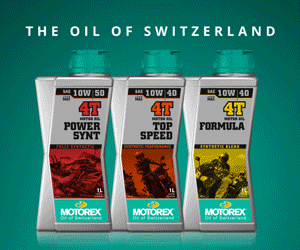Motorcycling Australia Whole of Sport Review recommendations
Motorcycling Australia President Braxton Laine
On behalf of the Motorcycling Australia (MA) Board, the Council and Review panel, I would like to thank everyone for their valued contribution to the Whole of Sport Review.
This has been has been an extremely challenging but necessary process which has assisted us in evaluating our existing business practices, with the aim of improving our services to members and stakeholders whilst ensuring financial sustainability in the future.
Ross Oakley (Chair of the Whole of Sport Review) has summarised the recommendations from the Review Panel which takes into account what our members and stakeholders are looking for in the Governing Body.
A message from the Chair of the review panel – Ross Oakley
Motorcycling Australia (MA) is well placed to develop its’ profile and build its’ membership base in the coming years, but much has to be changed in the way the organisation is governed and managed before this can be achieved.
We found many issues that must be addressed, but interestingly, these issues are no different from those that most sporting organisations have faced at some time during their existence.
In reviewing all the feedback from the consultation process, I formed a view that if the key players kept on blaming others (or each other) for all the things that were wrong in the sport, nothing would ever change. An attitude change is the first imperative.
The overriding conclusion that I came to was that no current personnel were particularly to blame for the problems that MA face today; it was more to do with how they were required to work within the systems and structures that have been allowed to develop over a period of many years of purported autocratic management. Change needs to be actioned urgently to recover the ground lost.
Certainly, when stakeholders were told that ‘no change’ was not a viable option, they immediately warmed to the view that ‘if we keep on doing what we have always done, we will keep on getting what we have always got’. Using this quote as the ‘catalyst for change’, most stakeholders accepted the premise that unless a major change (or a ‘Breaking of the Mould’) took place, a wonderful opportunity to take this sport to the next level would be wasted.
As indicated, most, if not all sporting organisations have or will go through this painful process; it’s how they deal with the necessity for change and acceptance of what is required in their sport to ‘break the mould’ that determines whether they move forward with a positive outlook and a real chance of growth and success. During the review process I have noticed these changes starting to occur and this bodes well for the future of the organisation and more importantly, for the sport.
However, MA needs to become far more ‘customer focussed’, particularly in relation to riders and clubs, and it needs to make it easier for people to participate in the sport. They need to become ‘enablers’ not ‘impeders’ and it is critical that the State representative offices (SCBs) are formally recognised as the key ‘delivery arm’ of the organisation. With this in mind, the MA Board Charter must contain a mandate that the welfare and development of clubs must always be a factor in all MA Board decision-making. All sectors of motorcycling need to abandon their inward looking focus. MA must now focus outwardly on market possibilities to develop and become more ‘mainstream’ and the MA Board (and management) must be given the resources to do so. In other words, MA must ensure that their members/riders are more connected, the ‘heroes’ are well known and recognised; and the sport receives better and more positive media coverage and promotion. Inclusion is the key!
MA has recognised that it now needs to invest in the future by implementing a range of strategies that will provide opportunities to grass roots participants, provide assistance to clubs to enhance infrastructure for members and provide a safe and enjoyable environment for all riders. The focus must be fairly and squarely on the MA clubs because in essence, that is really why the organisation exists!
Rather than wait until the WoSR was completed, the Panel commissioned two important additional reviews to ‘clear the decks’ and inform the process. The first project was a ‘Financial Review of MA Income and Expenditure’ (conducted by KPMG) and the second, a comprehensive ‘Review of Motorcycling Australia Insurance Limited (MAIL)’ which was also undertaken by KPMG.
As most would know, KPMG is one of the world’s leading professional services networks. We felt it critical to utilise KPMG’s services in this review to ensure independence and a critical and unbiased analysis of these two very important areas of MA’s operations. While both reviews had not been completed at the time this report was finalised, I am sure that they will assist the organisation in developing the new ‘Funding Model’ and also, in ensuring that MA insurance arrangements continue to support and protect all participants.
I would like to thank all the individuals who have provided input either by attendance at one of the meetings, via telephone interviews, written submissions or responding to the WoSR survey. It was obvious to us that we were dealing with a large number of very dedicated and passionate people – who all love the sport of motorcycling!
Finally, I would like to express my appreciation to my fellow Review Panel members: Braxton Laine, Dale Gilson, Brenton Matters, Dana Assenheim and Wayne Holdsworth. Your commitment, work ethic and professionalism were outstanding.
Finally, it was a real pleasure working with the appointed consultant, Peter Phair (Director) PEP- Management and Health Services Pty Ltd. Peter approached his role with great professionalism and worked tirelessly throughout the review process that was far bigger than originally thought, to ensure the investment of money and time by Motorcycling Australia was not wasted.
Continue on to next page for the executive summary and recommendations























